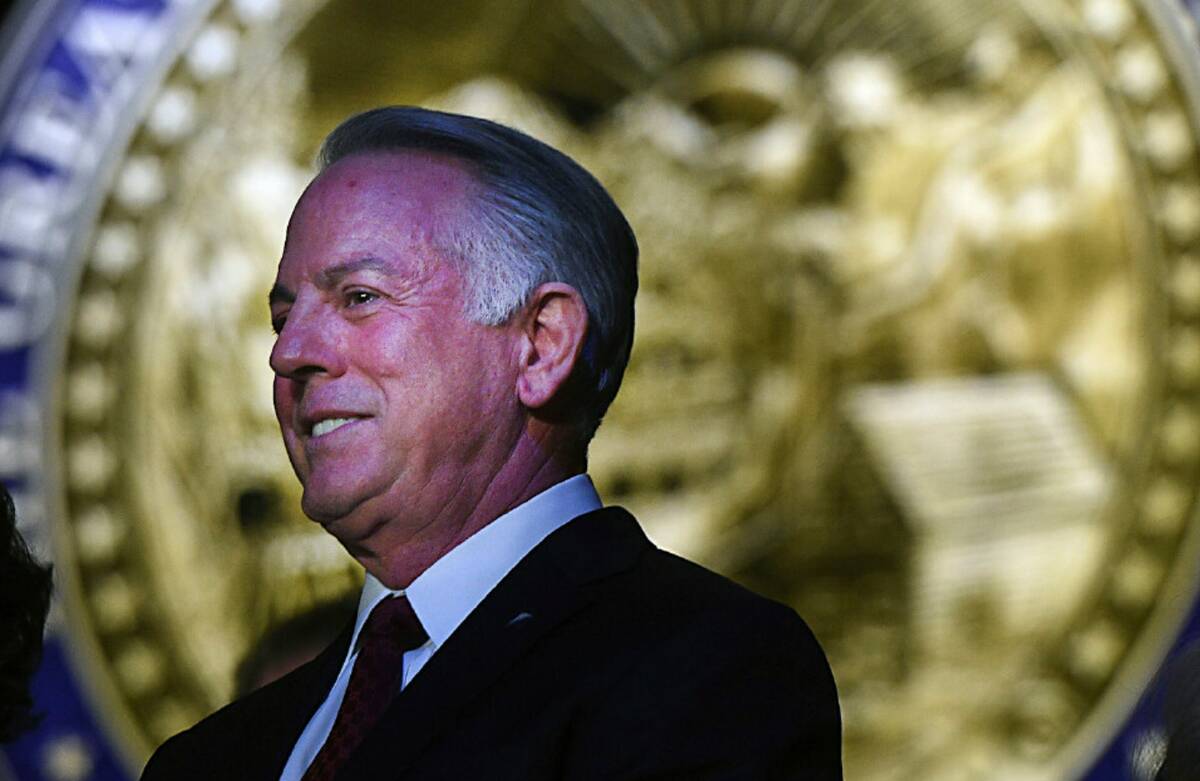Nevada governor wants to repeal school ‘restorative justice’
Gov. Joe Lombardo testified Thursday in support of a bill from his office that would repeal a restorative justice requirement for public schools.
During a hearing that lasted more than two hours, Lombardo told the committee he believes a 2019 restorative justice bill that became law was well intended, but led to an increase in dangerous situations in schools.
“It handcuffs teachers and administrators, leaving them powerless to address habitually misbehaving and violent students,” he said.
The Clark County School District saw an increase in violent incidents on school campuses after students returned to campuses following distance learning during the COVID-19 pandemic. That included a student who assaulted a teacher in April at Eldorado High School.
Lombardo signaled his intention to repeal the restorative justice law during his campaign, a victory speech in November and a January “State of the State” address.
The bill is among a few being considered by state legislators this session aiming to make changes to state law related to restorative justice.
Currently, state law says public schools must provide a restorative justice plan before removing a student from a classroom or school under certain circumstances. The plan can include measures such as behavioral interventions or a referral to community services.
The bill from Lombardo’s office would repeal that requirement.
The proposal would also give school principals the authority to limit the ability of a teacher or staff member to remove a student from a classroom if the action is deemed unnecessary.
It would also require the expulsion or temporary alternative placement on the first offense for students who commit battery that results in injury of a school employee, or sell or distribute a controlled substance.
The school must develop a re-entry plan based on restorative justice practices, according to the bill draft. For a second offense, the student would be permanently expelled from school.
The bill’s three main objectives are giving teachers the ability to control their own classroom and do their jobs, give parents peace of mind that their children are safe at school, and provide students a safe and supportive environment needed to learn, Lombardo said.
There should be zero tolerance for school violence, Lombardo said, noting the bill institutes “serious reforms” and has significant accountability measures built into it.
Every child should be given the opportunity to stay in school, he said, but violent students won’t be tolerated.
Lombardo gave a handful of statistics during his remarks, including that more than 6,800 violent incidents were reported at Clark County School District schools from August 2021 to February 2022.
And since 2019, there has been a 46 percent increase in violence and sexual assaults reported within the school district, he said.
The increase in school violence isn’t just limited to Clark County, he said. Earlier this month, a fight at Wooster High School in Reno injured a police officer and seven students, and resulted in two hospitalizations.
A few committee members expressed concerns about the bill, including a section that gives discretion to a principal to limit a teacher’s ability to remove a student from a classroom, saying they think it would make classrooms more dangerous.
Public comments
Representatives from a number of groups — including the Clark County Education Association, Clark County Association of School Administrators and Professional-Technical Employees, Nevada Association of School Superintendents, Latin Chamber of Commerce and the city of Henderson — spoke in favor of the bill.
“We know that this bill is long overdue,” said John Vellardita, executive director of CCEA, a teachers union that represents about 18,000 licensed employees.
There’s recognition that the climate in schools has gotten out of hand with student behavior, he said, noting there has been an “escalation of violence.”
Other groups — including the Nevada State Education Association, Nevada Coalition of Legal Service Providers, Children’s Advocacy Alliance and Battle Born Progress — voiced opposition.
Some said restorative justice was never funded or implemented properly, and pointed to a lack of training for teachers and administrators.
Contact Julie Wootton-Greener at jgreener@reviewjournal.com or 702-387-2921. Follow @julieswootton on Twitter.



















